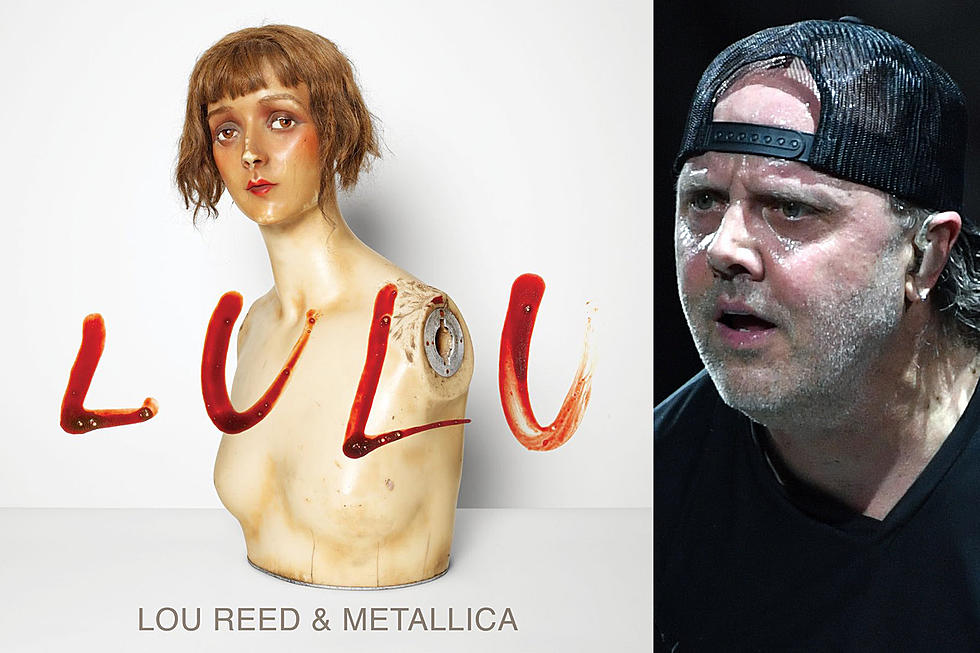
How Lou Reed Created One of Rock’s Most Hated Albums
Lou Reed's relationship with the rock 'n' roll press was never an easy one. After the release of Metal Machine Music in July 1975, it was much, much worse.
Time hasn't healed, salvaged, redeemed or vindicated the album in the decades since its release. It's just as abrasive, confrontational, controversial and difficult to listen to now as it was then. It didn't sound ahead of its time in 1975, and it sure doesn't sound ahead of its time now. Metal Machine Music sounds like a self-indulgent mess designed with one purpose in mind: To piss people off.
Reed was getting pretty good at it by the time he went into the studio to record his fifth solo album. Even as far back as the mid-'60s, when he was leading the Velvet Underground, Reed seemed to take a perverse delight in pushing people's buttons. He wrote songs about cross-dressers, drug addicts and S&M enthusiasts while most of his contemporaries were still hooked on "yeah, yeah, yeah."
But Metal Machine Music was something totally different, a 65-minute, double-LP's worth of guitar distortion and feedback divided into four equal sections that made zero concessions for pop, rock or any other music's traditional playbooks.
Did Reed make the album to piss off his record company, which he owed an album to? Maybe. That's certainly one plausible explanation for the racket displayed on the album's four sides. Also more than likely, however, is that Reed was once again testing the limits of his audience. That included the music press, with whom he'd had a tumultuous relationship from the start.
Between physical altercations and confrontational interviews, Reed was no stranger to duking it out with critics and writers. His previous album, 1974's Sally Can't Dance, was his only Top 10 LP. But its commercial success didn't mean the album received generally positive reviews (it didn't) or keep his record company happy: They insisted on a quick follow-up, hence Metal Machine Music.
Listen to Lou Reed Perform an Excerpt From 'Metal Machine Music'
The arrival of this project made matters worse on all accounts: It was the only Reed album not to crack the Top 200, until 2003's The Raven. It caused a rift between Reed and the industry, especially his label – almost all of the major labels, in fact. And it was immediately called one of the worst albums ever made.
Reed recorded Metal Machine Music entirely by himself, manipulating the tape speeds and pitch of various bits of guitar feedback, which were cycled through reverb, distortion and other amp-assisted sound effects. The result was a noise collage that worked in everything from classical to electronic to avant-garde influences. It wasn't music, and it sure wasn't listenable on any sort of level.
Even still, it's a mildly interesting work, part-noise experiment and part-fuck you, and a highlight (or lowlight, depending on your perspective) of contentious artist-fan relations. Only the most strong-willed listeners are capable of making it through even five minutes without a skull-crushing migraine creeping up. And there's no reward waiting at the end of Metal Machine Music, if you do make it all the way through. You've heard one minute, you've pretty much heard it all.
Its legacy, then, isn't the music. Or even the line it sorta connects to Lulu, Reed's equally reviled 2011 collaboration with Metallica. It's not even its oft-cited influence on industrial-noise artists over the years. This remains the pinnacle of artist indulgence, creating work for the sake of his or her "art."
Metal Machine Music isn't a good album – not then, not now. Reed knew its problems and reputation or he wouldn't have spent so much time defending it over the years.
Whether or not Metal Machine Music was meant as a middle finger to Reed's record company, RCA ended up getting in the last word: Two weeks after the album was released, it was pulled from stores and deleted from the label's catalog. It would be more than 20 years before Metal Machine Music was available again.
26 Rock Stars Inducted Into the Hall of Fame More Than Once
More From Ultimate Classic Rock









